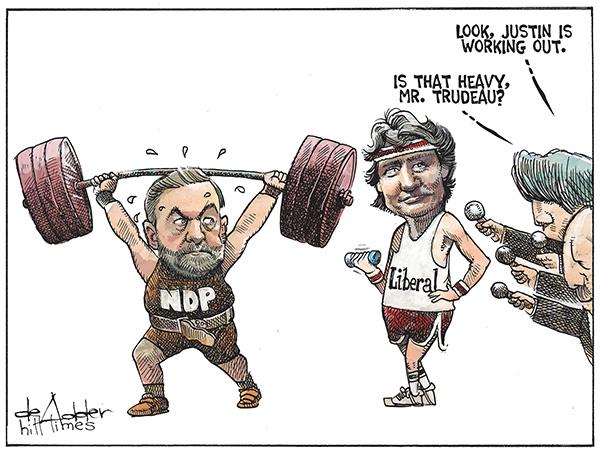PPCLI Guy said:
Absolutely. That concentration is a cancer that is eating my beloved country.....and my chosen profession. Anything would better at this point.
The
concentration is, as far as I can see/read almost universal, leaving aside the USA because it has a different, less 'adversarial' system of political-civil service relations. We, Canadians, were
pioneers, having begun the concentration of power in the PMO
circa 1970, while the Brits, for example, didn't really follow until Tony Blair became PM in 1997. But the
disease appears, to me, to be prevalent in Australia, Britain, Germany, India and so on.
I
think the real concentration began with Pierre Trudeau. There were a lot of things Prime Minister Trudeau didn't like about Ottawa
circa 1967, but, in my
opinion, what he
hated most was the
concentration of influence in the hands of a few people who were almost perfect copies of the civil service that OD Skelton created.
(Skelton was an odd duck. He was convinced that Britain was out to screw us in every way possible and that we could not trust them in any thing. But, he was also an
Anglophile and the people he, personally, recruited into the civil service, people like Arnold Heeney, Lester Pearson, Norman Robertson and Hume Wrong were all of a type ~ WASPs and
Oxbridge men. There were no French Canadians, few Roman Catholics, fewer Jews and so on. Was Skelton racially/ethnically prejudiced? Probably ... but so were many, likely most people of his generation.)
When Trudeau arrived in Ottawa it was hard, I have heard/read, for ministers, even for Paul Martin Sr, to penetrate the "old boys club" of the PMO (Mike Pearson, with only a few ides), PCO (Gordon Robertson, came to Ottawa after Skelton but of the same 'type:' WASP + Oxford), Finance (Mitchell Sharp, another former senior civil servant, but
only a London School of Economics graduate was minister) and (then) External Affairs. Trudeau set about doing two things:
1. He appointed his "own" man, Michael Pitfield, to be Clerk of the Privy Council ~ a move which I have heard/read was
resisted by the "old guard" which, essentially, went
underground for several years; and
2. He, sometimes forcefully, moved younger French Canadians into senior civil service appointments, especially in External Affairs, a department for which he (Trudeau) seemed to have a special animus.
You might have thought that Brian Mulroney would try to reverse Trudeau's changes - and he did, of course, make a few changes, but he came to Ottawa, as most Tories do, extremely mistrustful of the civil service which he, like many Tories, saw as a bastion of Liberal insiders ~ and you can understand that when you look at e.g. Pearson, Sharp and Marcel Massé all former very senior bureaucrats. But he was well served by Gordon Osbaldeston as Clerk and pretty much the entire civil service was behind him when he decided to implement the key elements of Liberal Donald Macdonald's Royal Commission on the Economic Union and Development Prospects for Canada, including Free Trade with the USA. Mulroney faced a common "new government" problem: inexperienced ministers. A strong PMO is almost mandatory when ministers (and ministerial staffs) are all "new to the business."
Jean Chrétien, for reasons of his own, promoted Jocelyne Bourgon to be Clerk of the Privy Council which gave his chief of staff, Jean Pelletier, and the PMO, even greater power.
Part, an important part, of the
containment of the PMO is to have a strong, effective (but equally un-elected) PCO. The PCO was too weak under Jocelyne Bourgon, Mel Cappe and Alex Himelfarb, none of whom, although able individuals, were noted as being strong leaders; I
suspect that Prime Minister Harper found the PCO to be too strong under Kevin Lynch.
Edit: grammar :-[




